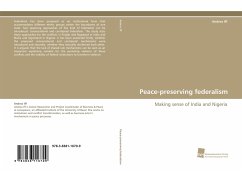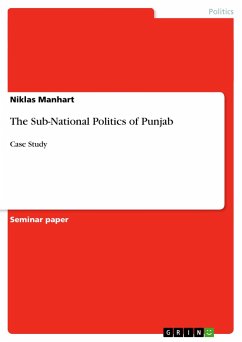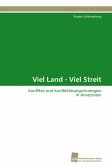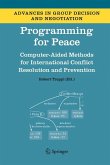Federalism has been proposed as an institutional form that accommodates different ethnic groups within the boundaries of one state. Two opposing approaches of this kind of federalism can be introduced: consociational and centripetal federalism. The study tests these appraoches for the conflicts in Punjab and Nagaland in India and Biafra and Ogoniland in Nigeria. It has been examined firstly, whether the proposed consociational and centripetal mechanisms were introduced and secondly, whether they mutually reinforced each other. It is argued, that the lack of shared-rule mechanisms can be seen as an important explaining variable for the persisting violence of these conflicts and the inability of federal institutions to transform violence.








